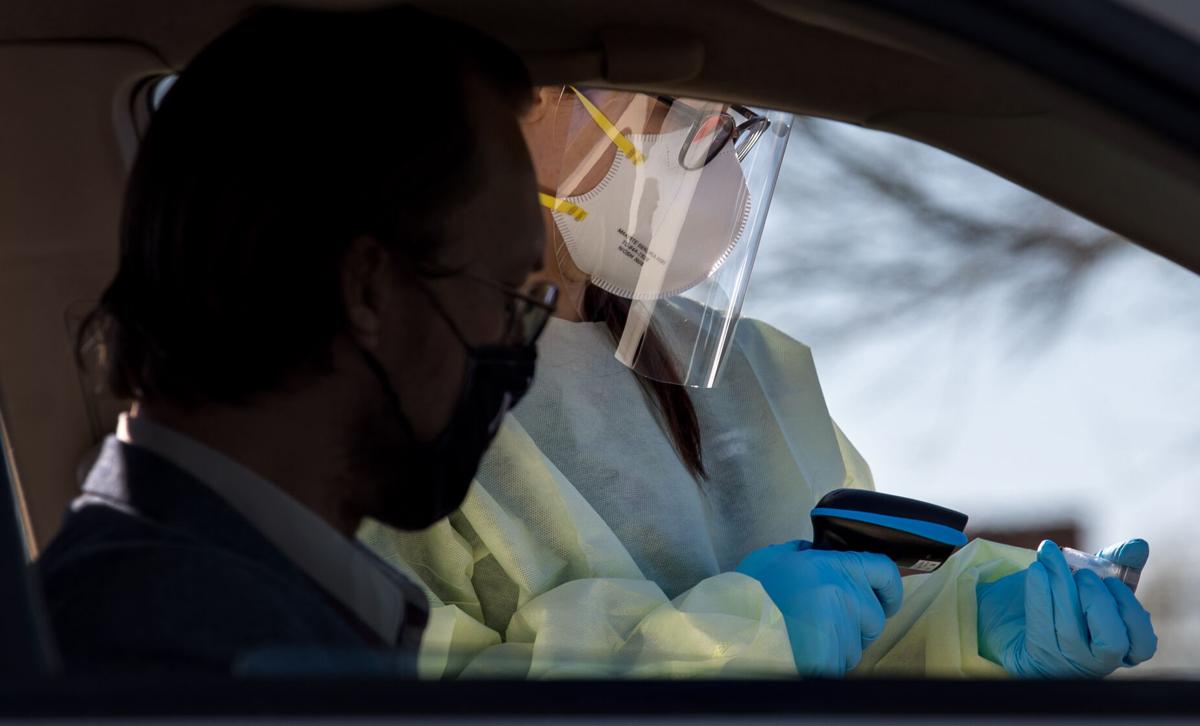PHOENIX — The chief medical officer at the state’s largest hospital network has some advice for would-be New Year’s Eve revelers looking to party with others.
Don’t. Just don’t. Even if you wear a mask and are fully vaccinated.
Dr. Marjorie Bessel, of Banner Health, said Tuesday that COVID cases continue to increase in Arizona, fueled in large part by the omicron variant.
On one hand, she said, it appears to be less virulent, producing a less severe disease. That, in turn, may mean a smaller percentage of people who contract that variant are likely to need hospitalization than those who have come down with the delta variant.
But there’s another side to that: Omicron is more contagious and easier to transmit. The sheer number of people who contract that variant, by itself, can overwhelm an already stressed hospital system.
She cited the daily figures from the Arizona Department of Health Services which shows only 114 beds in intensive care units available statewide, just 7% of the total. The figure was only slightly better for inpatient beds, with a 9% vacancy.
However, some Banner facilities are operating above full capacity, Bessel said.
The health department also reported another 162 new deaths Tuesday, bringing the statewide total to 24,144. There also were another 1,976 cases of the virus logged.
Bessel said the situation is going to get worse before it gets better.
“Our predictive modeling tools show no sign of the surge letting up,’’ she said. “We expect that volumes will continue to increase through the beginning of next year before peaking around the middle of January.’’
The big unknown is omicron.
Bessel pointed out that Banner, like many hospital chains, has been using monoclonal antibodies to treat people who contract COVID-19. These drugs can help enhance the immune system.
Only thing is, the ones now available don’t seem to work quite as well against the omicron variant.
Bessel said there is a new form of the drug called Sotrovimab that does seem to be effective. But Banner cannot get any of that.
So Bessel said Banner hospitals have stopped administering any monoclonal antibodies until the new drug is available, with some expected this coming week, though she said “supplies will be extremely limited.’’
There is a new oral medication to fight COVID that is now available.
Here, too, Bessel said, people should not assume they will be able to simply pop some pills and beat the virus.
“It is in limited supply and not everyone is eligible to get it,’’ she said. “The medication will be used for those at highest risk for hospitalization” and those who meet strict criteria.
As for New Year’s, Bessel said even who have had the virus, and/or are vaccinated, are not immune and should not feel they are free to party.
“Omicron can and is infecting those with previous COVID infection,’’ she said. “Omicron is resulting in higher vaccine ‘breakthrough’ infections, particularly in those who have not yet been boostered.’’
“You should not be gathering in large groups,’’ she said.
This comes as getting tested has become more difficult as demand increases. And while Bessel is not recommending routine testing, she said it is appropriate for some.
“We do know that the omicron variant can also present like a regular cold,’’ she said. “So anything that could be consistent with COVID should cause somebody to go and get tested.’’
“We all are aware that if you’re traveling sometimes you need to get tested,’’ she continued. “And others who are perhaps planning to visit with high-risk relatives are getting tested ahead of time to reduce or minimize the likelihood that they may pass on the virus to others.’’
As for quarantines and precautions, the Centers for Disease Control and Prevention earlier this week modified the original guideline of staying away from others for 10 days. That was based on a finding that transmission seems to occur right before or within a few days of the onset of symptoms.
Bessel said she agrees with the new protocols for five days of isolation for people without symptoms.
But she said people need to understand the second half of what that entails: wearing a mask for another five days after resuming outside activities.





